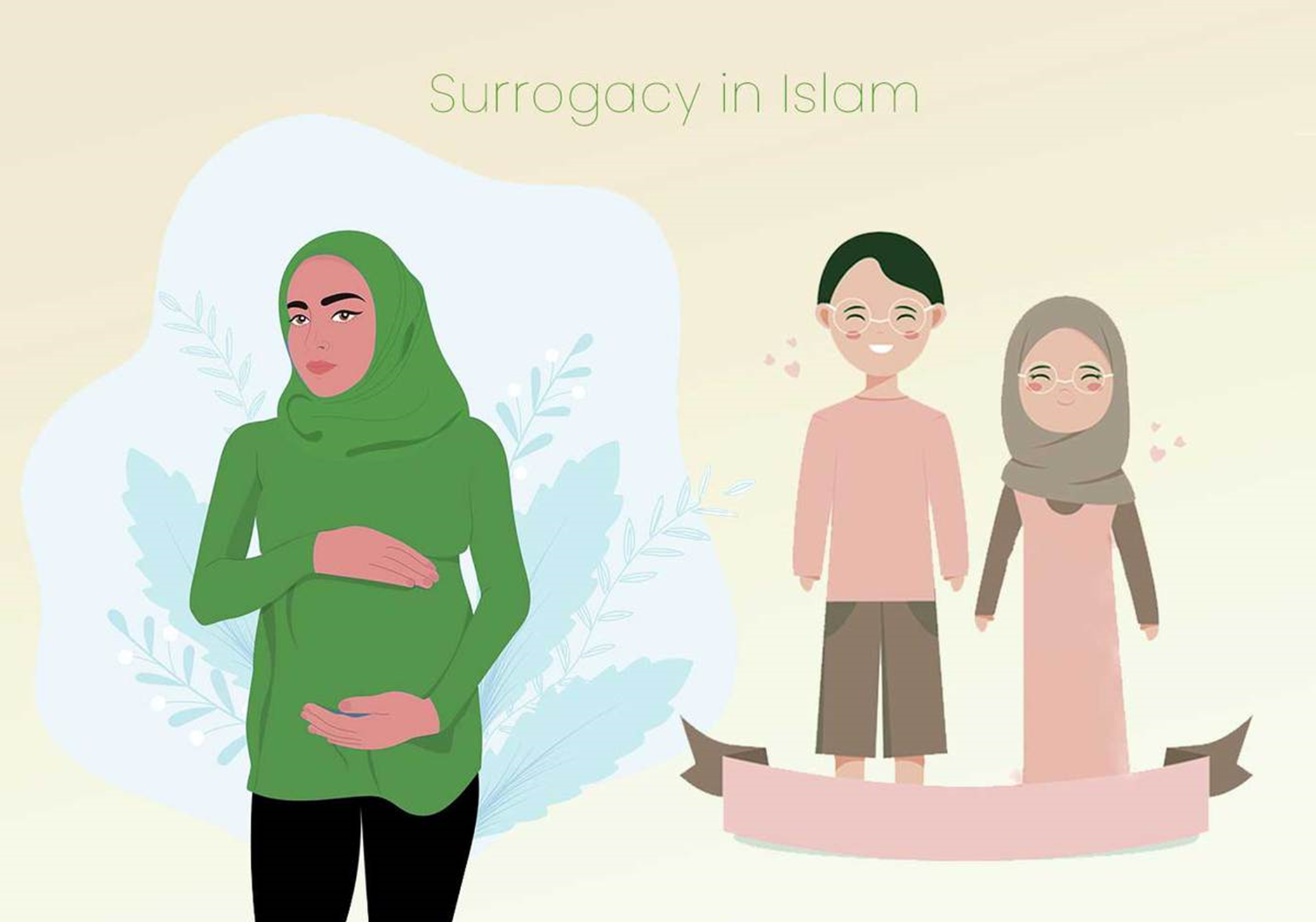Surrogacy is an agreement by which a woman agrees to get pregnant and carry a child for another person or couples, who will be the child’s parent. Couples usually are in search of surrogacy arrangements when pregnancy is medically dangerous or impossible. It is a legal act in many countries while there are still some countries that do not permit surrogacy
Surrogacy is the involvement of a third party in the infertility treatment process; a couple asks another woman to carry and give birth to a baby for them because the female partner is unable to have a normal pregnancy. There are several ways of approaching surrogacy but this is not an easy process, either emotionally or ethically.
Why surrogacy is done?
Couples choose surrogacy when they cannot have children by usual conceiving or it is dangerous for the woman to get pregnant. The medical conditions that necessitate surrogacy include:
· Severe malformation of uterus (uterus myoma or fibroids, uterine polyps)
· Untreated infection in the uterus
· Removal of the uterus by hysterectomy
· Repeated failure of IVF
· Recurrent miscarriage
· Severe heart disease and other medical conditions that make pregnancy risky or impossible
Surrogacy in Iran
Surrogacy was a practice prevalent in the ancient world that allowed women to give birth when their men were away from home to get married or pursue other endeavors. Surrogates were usually older women that had been married before, who would travel to the place where a man was to get married. Surrogacy is a contract by which the surrogate woman agrees to become pregnant in laboratory environment and bear a child for other people or couples who are the child’s parents.
Surrogacy in Iran can take place if a surrogate is over 18 years old, and she can provide evidence that she has taken proper contraceptives and that she is no longer sexually active. If the male partner cannot have another child due to he or she being infertile, the partner can seek the services of another person who is willing to be the surrogate. Surrogacy in Iran is also known as gestational surrogacy and can take place within countries like United States, United Kingdom, Australia, Ukraine and Canada.
Iranian law does not permit the practice of surrogacy in Iran for single people, lesbians or gays, unless a married person wants to do surrogacy. In this case, the partner must get permission from the doctor for the necessity of surrogacy in Iran, who would allow the couple to enter into the contract. Surrogacy can take place in a hospital, clinic, hospital ward, house, or any place where the patient resides. IVF clinics in Iran have high-technology equipment in addition to the presence of skilled physicians.
When we talk about international surrogacy, it is very important to choose a proper healthcare facilitator that knows all the surrogacy laws and its regulations in different parts of the world. TebMedTorism has a comprehensive knowledge regarding international fertility laws especially in the case of surrogacy. TebMedTorism has extensive experience working with foreign couples from all over the world including European, American, and Asian countries. For getting more information about details of surrogacy in Iran, you can contact our experts free of charge.
Types of surrogacy
The difference of surrogacy types are from the origin of the gametes and the financial arrangements with you and the gestational carrier:
Host or gestational surrogacy: the woman acting as the surrogate or gestational carrier is not genetically related to the child. The embryo may be created, using IVF, from the eggs and sperm of the commissioning parents combined with either donor eggs or sperm.
Traditional or partial surrogacy: The surrogate is the genetic mother of the child. Sperm from the male of the commissioning couple is used to artificially inseminate the surrogate using IUI.
Altruistic surrogacy: The surrogate or gestational carrier receives no more than allowable expenses and so does not benefit financially from the surrogacy arrangement.
Commercial surrogacy: a fee is paid to the surrogate or gestational carrier, on top of allowable expenses, as payment for the service.
Surrogacy cost in Iran
In Iran the cost starts from almost 11000$ to 13000$ depending on the type of surrogacy, the surrogate person, your expectation and the agency. This is the cost the couple has to pay for a complete surrogacy procedure. The cost includes:
· General medical checkup, blood work, and STD screening
· Legal background check
· Fertility tests, including hormone screening and ultrasound exams
· psychological evaluation
· IVF or IUI or other infertility treatment costs
Where is Surrogacy allowed?
The regulations that govern surrogacy, and whether it is allowed to take place at all, differ across countries of the world. Some countries, such as Spain, the UK, China, Canada, and Australia will allow altruistic surrogacy, but will not allow any form of commercial arrangement to take place.
Other countries ban surrogacy completely including Germany, Italy, and France. The USA is plagued by different regulations in different states, and many American couples travel abroad to make arrangements. Iran, which has no hard laws at all regulating surrogacy, has become a popular destination for couples seeking surrogate or gestational carrier in recent years.
TebMedTourism attorneys have a deep insight about suitable programs for international future parents. We make sure that we provide you a safe environment for having a child while having your satisfaction. If you need to consult more about this process with our experts at TebMedTourism, you can contact +98-9120985010 all through the week.
Surrogacy in Islam

Surrogacy is a type of pregnancy in which a surrogate or gestational carrier carries the baby but delivers it to intended parents. The surrogate or gestational carrier may or may not have a biological link to the child depending on the type of surrogacy. This causes different views between Slam scholars. Some of them verify it and some others believe that surrogacy is illegal and forbidden in Islam.
Some of the Islamic scholars think that traditional surrogacy is not allowed since the surrogate or is the child’s biological mother and has all the responsibilities of a mother. In case that the surrogate or gestational carrier marries after that insemination, her children will be “mahram” to the child that she delivers it to the intended family. They argue that this is a type of adultery since the surrogate mother carried the fertilized egg of a man who is not her legal husband and the child is not born due to legal marriage. They consider the child as illegitimate.
Of course, this is not the view of all Islamic scholars. Some scholars believe that surrogacy is allowed in Islam. They may argue that this type of insemination is not done for the wife and husband relationship but just for giving birth to a child. This group thinks that when legally married parents are not able to conceive a child themselves, they are allowed to use means to compensate for their inability. They can use this method on the principle of public interest (maslaha).
The surrogate mother just rents her uterus and she is not engaged in adultery. They also analogize biological surrogate (in traditional type) to hiring a woman to breastfeed a child, which was done one day and was an acceptable practice.
Gestational type means that the woman’s egg is fertilized with her husband’s sperm via IVF, and the embryo is placed in mother’s uterus. In this type, the parents are the child’s biological parents, but the embryo is placed into the surrogate’s mother uterus since the biological mother has a medical problem in carrying the baby. The surrogate mother has no biological relationship to the child.
Most of the Islam scholars have verified this type and they are just a few of them that reject it. Those who verify these types of surrogacy refer to the verse in Quran which says: “…their mothers are only those who conceived them and gave birth to them (Surah Mojadeleh, 2).” They want to mention that though the surrogate mother carries the baby, the intended parents are the biological parents and they will have responsibility for him/her.
If we suppose that Islam permits both types of surrogacy, still it is a complicated issue for intended parents. The surrogate or gestational carrier should be chosen among committed women who do their best to have a mentally and physically healthy child. Surely, not only Islam, Christianity, etc. may verify this important issue about surrogate mothers, but also every responsible and committed person understands the depth of this subject. That is why in some countries the commercial type is forbidden.
TebMedTourism, as the most professional healthcare company located in Iran, can help you in the surrogacy journey. We will be by your side in all the steps, so that you can hold your baby in your arms and start a new life. For getting more information about surrogacy in Iran, visit our website on www.TebMedTourism.com.


Your Comment